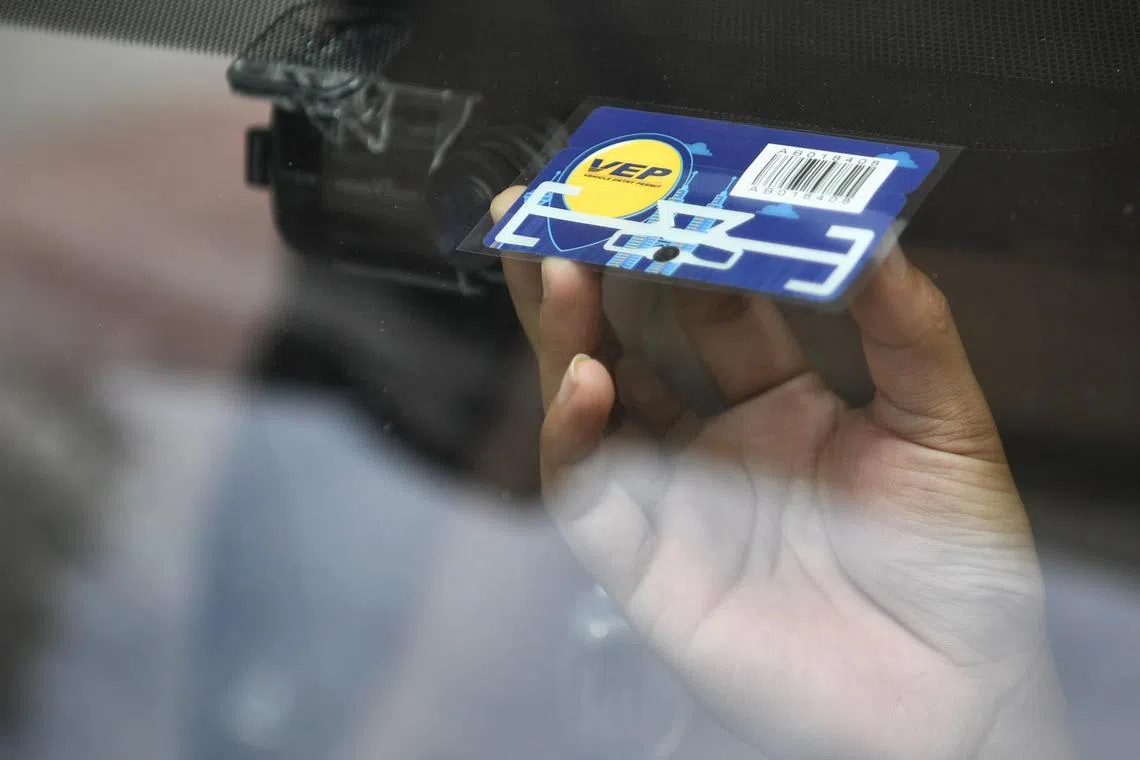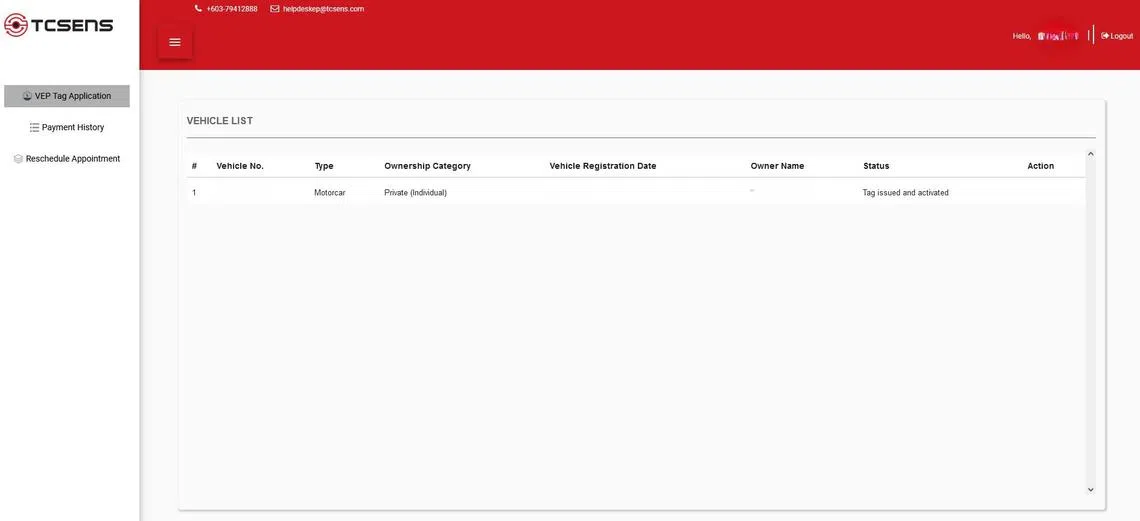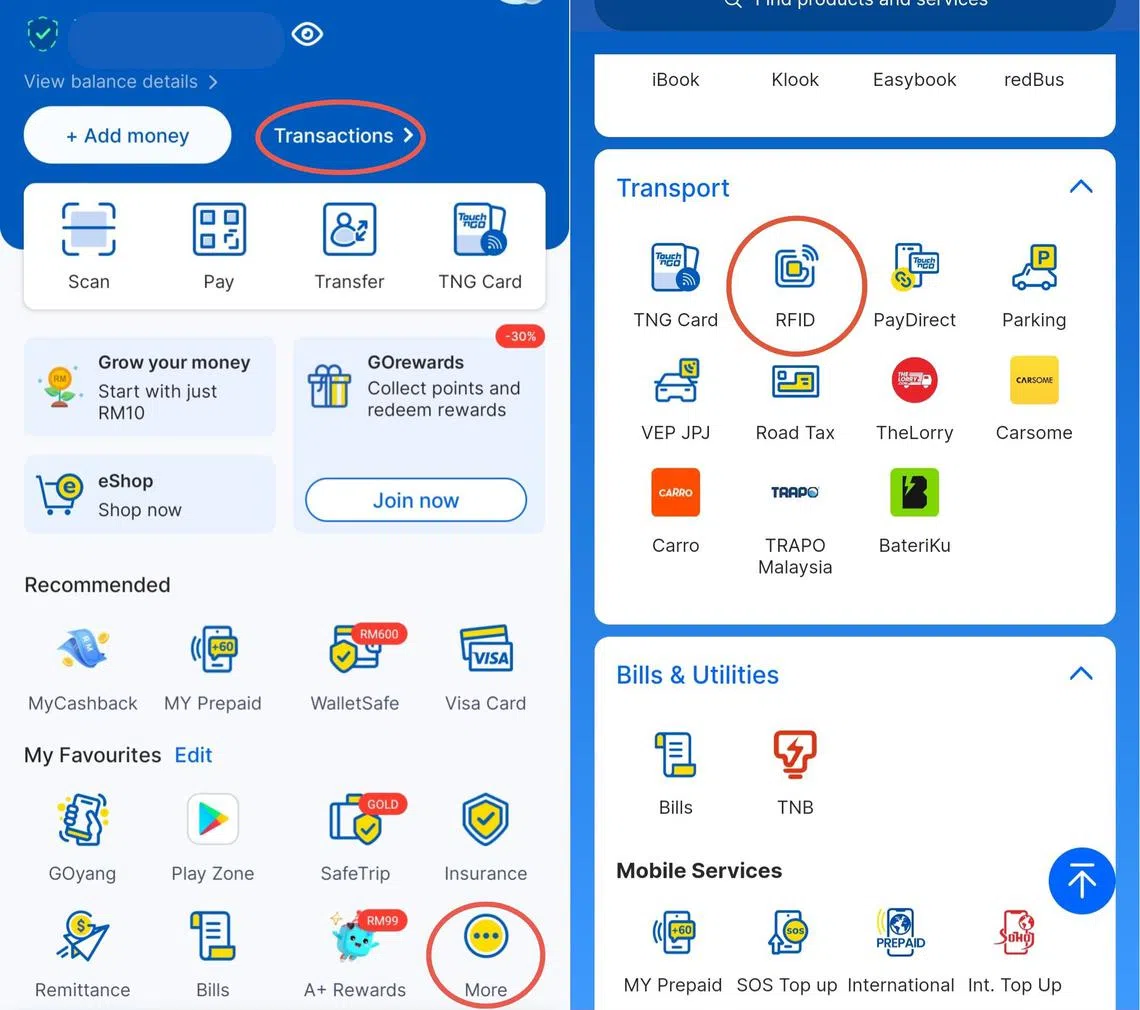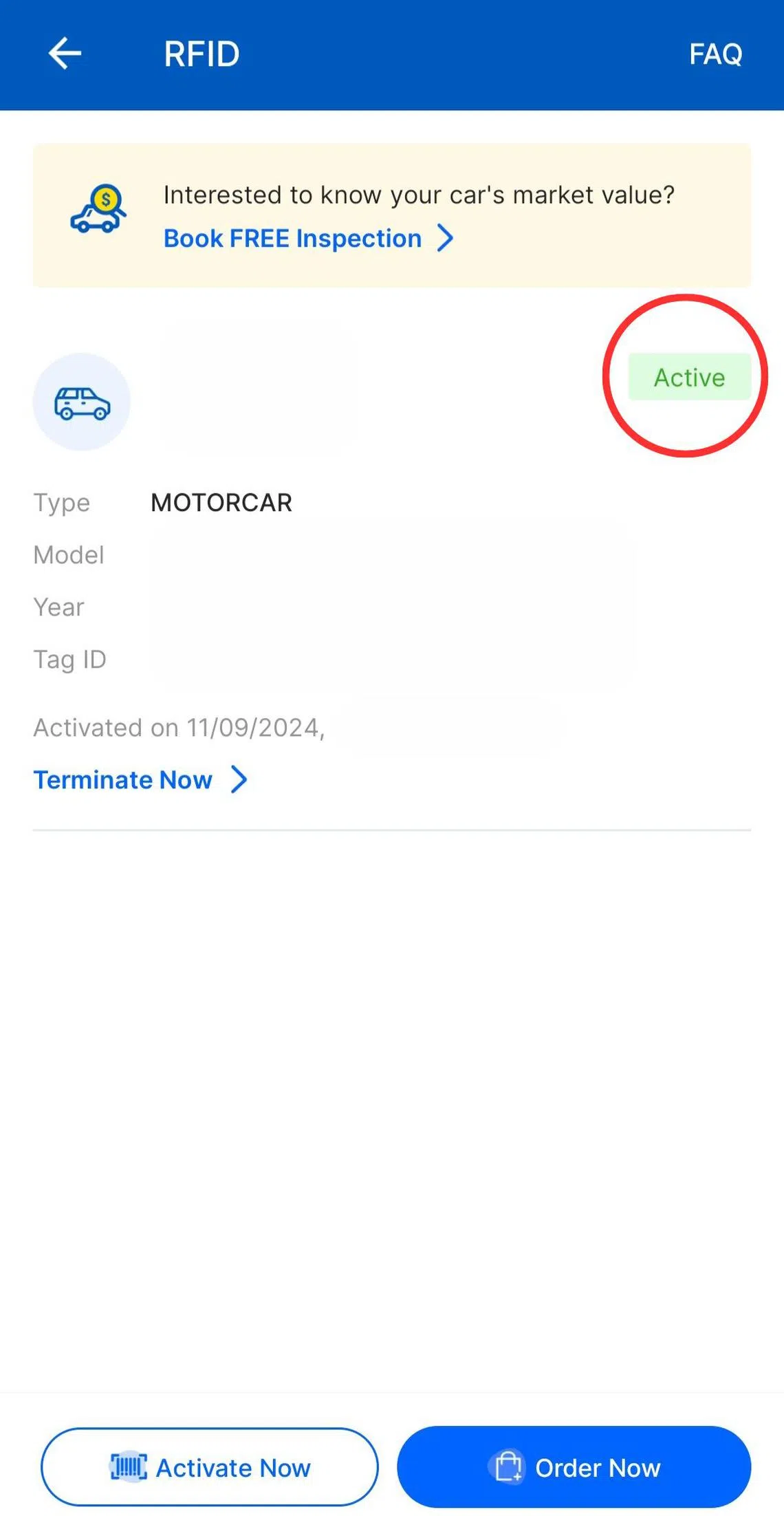ST Explains: What to look out for when driving into Malaysia as VEP kicks in
Sign up now: Get ST's newsletters delivered to your inbox

If you already have registered for one, or activated the RFID tag, here are some things to look out for before you drive into Malaysia on Oct 1.
PHOTO: ST FILE
SINGAPORE – From Oct 1, all foreign-registered vehicles entering Johor from Singapore must have a Vehicle Entry Permit (VEP), though those without one can still enter the country, but will receive a warning.
If you have not already registered for your permit, you can find out more here
If you have already registered for one, or activated the radio frequency identification (RFID) tag, here are some things to look out for as you drive into Malaysia.
1. Activation of RFID tag
Log in to the TCSens portal at vepams.jpj.gov.my.
Under the “VEP Tag Application” tab, make sure that your tag is activated.

Check the TCSens portal and make sure that your VEP RFID tag is activated.
PHOTO: SCREENGRAB FROM TCSENS
Malaysia’s Road Transport Department (JPJ) announced on Sept 27 that those who have yet to install the VEP RFID tags on their vehicles will still be allowed to enter Malaysia
Private car owners without an activated tag may be reminded by JPJ officers at Malaysia’s land checkpoints to immediately register, install and activate their tags, and will be issued warning notices before they leave Malaysia.
2. Linked Touch ’n Go account
You would have downloaded and activated your Touch ’n Go eWallet by now. The RFID tag is linked to this eWallet, which can be used to pay for your toll fees and road charges in Malaysia.

Click on “More” on the main page of the Touch ’n Go app, and then the “RFID” option, to check if your VEP is linked to your Touch ’n Go app.
PHOTOS: SCREENGRABS FROM TOUCH ’N GO
To check if the two are linked, you can click on the “More” tab in the Touch ’n Go app, and then “RFID” under the Transport section.
It will take you to a page showing details of your linked vehicle, including the tag ID.
Make sure “Active” is displayed near the top right corner of that page.

If “Active” is displayed near the top right corner of this page, your VEP is linked to your Touch ’n Go account.
PHOTO: SCREENGRAB FROM TOUCH ‘N GO
Also, remember to top up your eWallet.
3. Paying toll fees at the Malaysian checkpoint
While you would typically tap your physical Touch ’n Go card on the scanners at the immigration booth to pay your toll fees, these payments should be done automatically via the RFID tag and the linked eWallet if the tag is activated and linked to Touch ’n Go.
You can click on “Transactions” on the Touch ’n Go app to track your payments.
You can also use your VEP RFID tag to pay for highway toll charges, by using the designated RFID lanes on the highways.
They will be marked with a white signboard with “MyRFID”.
It would be good to keep a physical Touch ’n Go card with enough stored value, just in case.
Those with inquiries about the VEP should e-mail aduanvep@jpj.gov.my


